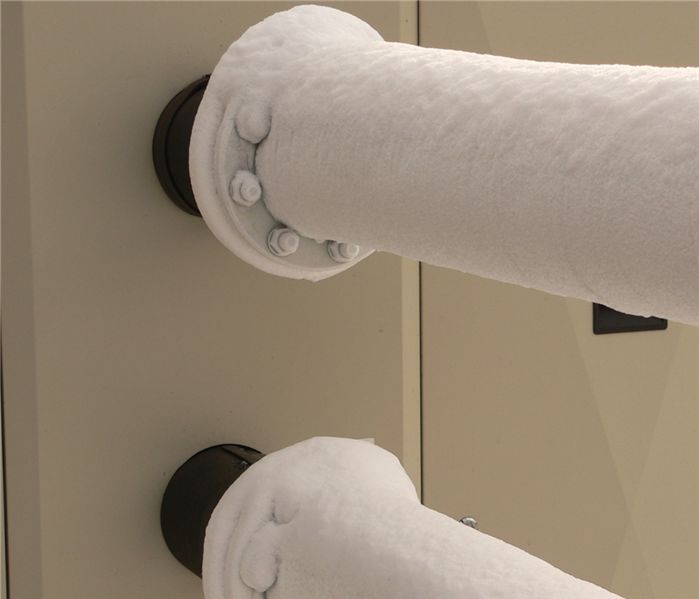How to Avoid Winter Water Disasters in Dover, PA
12/19/2022 (Permalink)
 Whether you own a business or if it’s your Gilmore or Malvern home, both are susceptible to frozen pipes when temperatures reach below freezing.
Whether you own a business or if it’s your Gilmore or Malvern home, both are susceptible to frozen pipes when temperatures reach below freezing.
Western Pennsylvania is very familiar with frigid cold weather. From the months of November to March it is likely that cold weather will have taken its toll. This frigid cold weather can take quite the toll on your Dundee, Strasburg, and Winfield home, especially if you haven’t taken the right precautions. One main side effect of winter weather is frozen pipes. Whether you own a business or if it’s your Gilmore or Malvern home, both are susceptible to frozen pipes when temperatures reach below freezing.
How to Take Care of Frozen Pipes
It is important to take care of frozen pipes as soon as possible. The longer pipes are frozen, the more likely they are to expand and create cracks in them. This is unfortunate because when the weather finally warms up again, the pipes then thaw and lead to water leaks. A water leak can be quite destructive depending on two factors: how long the water has been leaking and how big the crack is. Here are best practices to thaw frozen pipes from RedCross.org,
- If you turn on a faucet and only a trickle comes out, suspect a frozen pipe. Likely places for frozen pipes include against exterior walls or where your water service enters your home through the foundation.
- Keep the faucet open. As you treat the frozen pipe and the frozen area begins to melt, water will begin to flow through the frozen area. Running water through the pipe will help melt ice in the pipe.
- Apply heat to the section of pipe using an electric heating pad wrapped around the pipe, an electric hair dryer, a portable space heater (kept away from flammable materials), or by wrapping pipes with towels soaked in hot water. Do not use a blowtorch, kerosene or propane heater, charcoal stove, or other open flame device.
- Apply heat until full water pressure is restored.
- Check all other faucets in your home to find out if you have additional frozen pipes. If one pipe freezes, others may freeze, too.
For more information on how SERVPRO of New Philadelphia can help you after a disaster, call us at (330) 556-4656 or visit our Website! We are always Here to Help!







 24/7 Emergency Service
24/7 Emergency Service